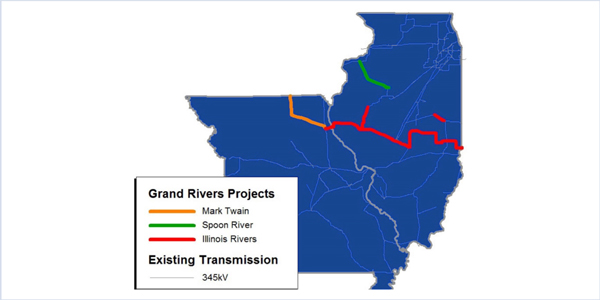FERC last week declined to grant Ameren additional transmission incentive rates for portions of the company’s 500-mile Grand Rivers project in Illinois and Missouri.
Ameren sought a 100-basis-point incentive adder for the return on equity for the Illinois Rivers and Mark Twain components of the project, which is intended to create a continuous 345-kV path from Iowa to Indiana. The company also requested authorization to assign the incentive to any affiliate that undertakes the development, construction or ownership of those portions of the project.
The commission said the segments were already too far developed to be considered risky enough for incentive rate treatment (ER18-463).
“We find that, due to the late stage of … development, including the substantial completion of the Illinois Rivers component, Ameren Transmission has failed to demonstrate that the remaining risks and challenges associated with the components warrant the requested ROE incentive,” the commission sad. “A project that is further along in construction and thus closer to completion typically faces fewer remaining risks and challenges, and we find that is true here.”
FERC agreed with the contention by the Organization of MISO States and the Missouri Public Service Commission that Ameren had already spent 77% of its cost estimate on the two lines when it asked for the rate incentive in mid-December, when permitting risks were minimal and already covered by a previously approved abandonment incentive. Ameren had argued that the two lines face “unprecedented” risks that are not covered by its other rate incentives.
The commission has previously granted several incentives for the Grand Rivers Project, including 100% construction-work-in-progress recovery, abandoned-plant recovery, a hypothetical capital structure and the authority to assign incentives to affiliated entities.
— Amanda Durish Cook





